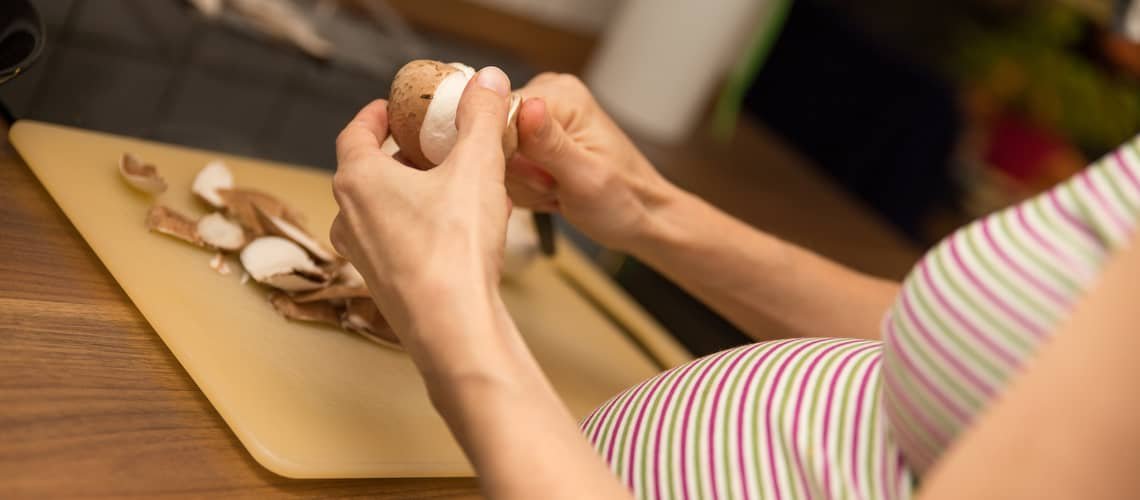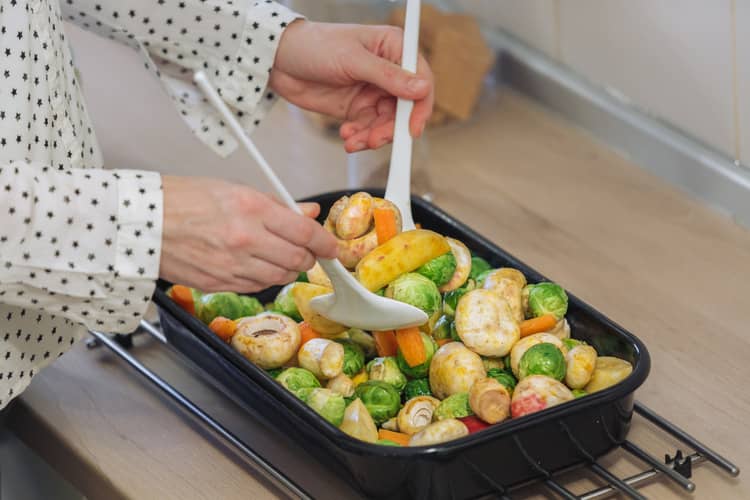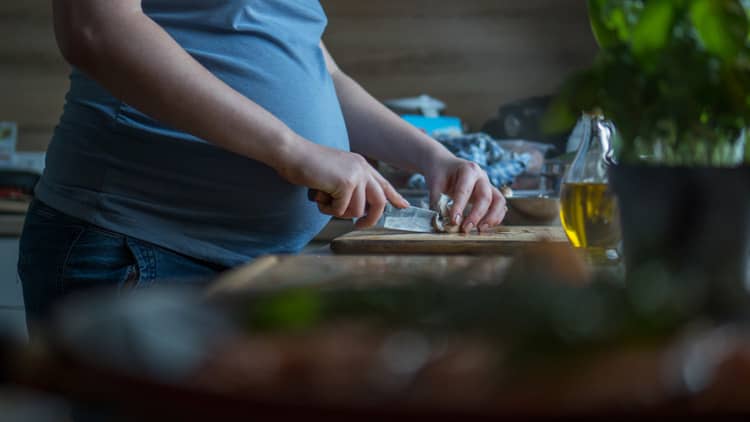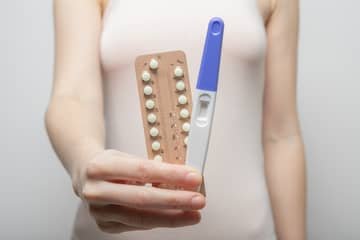
Mushrooms in pregnancy. Can champignons and other mushrooms be eaten?
Many mothers-to-be often ask what not to eat during pregnancy, what foods to avoid or which foods are prohibited during pregnancy. The basis for eating during pregnancy is a balanced diet, enough vitamins, minerals and a sufficient drinking regime in all circumstances. It is no longer the case that you have to eat for two during pregnancy. However, there are certain ingredients, foods, spices and drinks that you should avoid during pregnancy. And what about mushrooms? Some recommend them as prohibited foods during pregnancy, others talk about their mineral and vitamin B content. Can I eat mushrooms during pregnancy? Which mushrooms can be eaten during pregnancy?
Do you have a taste for champignons or other mushrooms during pregnancy, but have you heard information about how toxic they can be and are you at risk of poisoning? So you better tame your taste buds and reach for a proven apple. Yes, the fact is that many mushrooms act like sponges and can absorb toxic substances from the environment. Hallucinogenic and poisonous mushrooms also occur in nature. However, this does not make them prohibited foods during pregnancy. There are several types of edible mushrooms that you can eat during pregnancy and you don't have to worry that something will happen to you. However, everything in moderation applies. How about oyster mushrooms or champignons during pregnancy?
Mushrooms in pregnancy
Nutritionists agree that eating mushrooms during pregnancy is perfectly fine. They even point to the many benefits that consumption of mushrooms during pregnancy brings thanks to their nutritional value. Of course, we are talking about edible mushrooms - mushrooms that are not poisonous and do not contain any psychoactive substances. Pregnant women, as well as people in general, should always be sure that buying mushrooms is safe.
For this reason, it is advisable not to take risks and not to consume, for example, mixed frozen, canned or dried mushrooms during pregnancy or various forest mushroom mixtures from unverified collectors. It is always better to reach for mushrooms from a verified seller or a collector that you know has experience. It is important that the mushrooms are fresh and before the expiration date. Mushrooms should always be cleaned, washed, and sufficient heat treatment must not be missing before consumption. Do not overdo it with the consumption of mushrooms during pregnancy and it is recommended to consume them in limited quantities. Larger volumes could cause heaviness on the stomach or problems with digestion, because their digestion is more demanding for the gastric juices.

Benefits of eating mushrooms during pregnancy
What nutritionists point to is the nutritional value of mushrooms. This can also be considered as one of the reasons for eating mushrooms during pregnanc. This does not mean that their consumption is necessary, you can easily replace them in a balanced diet, but it is certainly not harmful to include them in a reasonable amount in the diet of a pregnant woman. What do mushrooms actually contain?
It largely depends on the type of edible mushroom itself. Mushrooms are a typical example. In 100 grams of mushrooms, you will discover approximately 2.7 g of protein, 2 g of carbohydrates, 0.4 g of fat, and you will receive approximately 28 calories in total. The oyster mushroom is similar. 100 grams of oyster mushroom has approximately 3.3 g of protein, 3.8 g of carbohydrates and 0.4 g of fat. About 33 calories in total. In addition, mushrooms contain many minerals and vitamins such as calcium, sodium, phosphorus, magnesium, potassium, zinc and are also rich in vitamin D. Especially if the mushrooms are exposed to sunlight. Mushrooms are also known to contain beneficial antioxidants for the body.
It contains a wider spectrum of B vitamins, such as B1 (thiamine), B2 (riboflavin), B3 (niacin) or B5 (pantothenic acid). These vitamins are very important for the complex development of the fetus, and they can be taken naturally from the diet thanks to mushrooms. The aforementioned riboflavin supports the development of the fetal nervous system, and niacin supports blood circulation in the body of a pregnant woman. A 2020 clinical study (MedicineNet) showed that consuming 100g of mushrooms per day from shortly before pregnancy until the 20th week of pregnancy can reduce the risk of high blood pressure and preeclampsia in pregnant women.

When and why not to eat mushrooms during pregnancy?
You should avoid eating mushrooms during pregnancy if you developed allergies to any of the mushrooms before pregnancy. If you ate your favorite mushrooms before pregnancy and you did not have any symptoms of an allergic reaction, you can safely consume them during pregnancy. A common problem after eating mushrooms is indigestion or problems with digestion. A complication can be a larger quantity consumed, but also the fact that the mushrooms were not fresh or were not properly heat-treated. During the first trimester of pregnancy (up to the 12th week), the symptoms of pregnancy nausea and vomiting are typical. During this period, it is better not to overburden the stomach with mushrooms or at least limit their intake in larger quantities. Their very smell can make you feel sick. This also applies to other foods, not just mushrooms.
Never eat mushrooms raw during pregnancy. In addition to abdominal pain and digestive problems, you are also at risk that toxins or fungal infections, which the fungi have attached to each other from the environment, may enter the body. Mushrooms from unverified collectors and suppliers are also a huge risk. Hallucinogenic mushrooms with psychoactive substances or poisonous or deadly poisonous mushrooms are life-threatening for humans after consumption. During pregnancy, their consumption can have fatal consequences for the pregnant woman and the fetus.
The fact is that some doctors forbid pregnant women mushrooms for preventive reasons. This is mainly the risk of consuming a large amount of mushrooms, which can cause gastrointestinal problems (dietary error), nausea, subsequent loss of appetite, reduced fluid intake or vomiting. There is also the mentioned risk of consuming poisonous mushrooms, which can cause fatal consequences.

Mushrooms suitable for consumption during pregnancy
It is important to consume exclusively edible mushrooms - champignons. As the safest edible mushrooms, which you don't have to worry about even during pregnancy, we can consider champignon, oyster mushroom, boletus, oak mushroom, buttercup, champignon mushroom, and many others. Even exotic mushrooms such as shiitake or Judas's ear should not harm you. Nutritional advisors and doctors recommend giving preference to commonly available mushrooms, such as champignons or oyster mushrooms, and despite the appetite, it is better to avoid consumption from harvests during the mushroom season.
Before the actual preparation, do not forget to remove bruised or visibly damaged parts and wash the mushrooms thoroughly under running water. It is important to heat the mushrooms properly. Ideally by boiling, stewing or baking. Avoid raw or semi-raw mushrooms completely.
Mushrooms in pregnancy - experience
Most of the discussing mothers had no problem with the consumption of mushrooms during pregnancy. In terms of types of mushrooms, they most often reached for champignons and oyster mushrooms. These are the most available edible mushrooms in stores. Although some women report that they have heard about the inadvisability or prohibition of mushroom consumption during pregnancy, most of them consider this to be nonsense. Pregnant women have also encountered the fact that some doctors prohibit their consumption as a preventive measure precisely because of the risk of poisoning and the development of a dietary error. Moms agree that edible mushrooms during pregnancy, as well as other foods, should be enjoyed in moderation.
The most frequent questions - FAQ
Are you dealing with the question of whether you can treat yourself to mushrooms during pregnancy? It is safe? What mushrooms can you eat during pregnancy? Are mushrooms among the prohibited foods during pregnancy? We will answer your questions in the text. In case of further questions, leave us a comment under the article. What is your experience with mushrooms during pregnancy? We will be glad for your opinions, experiences, recommendations and tips, which you can share in the discussion.
How does mushroom poisoning manifest itself?
What mushrooms can I eat during pregnancy?
Why not eat mushrooms during pregnancy?
Pridať komentár





